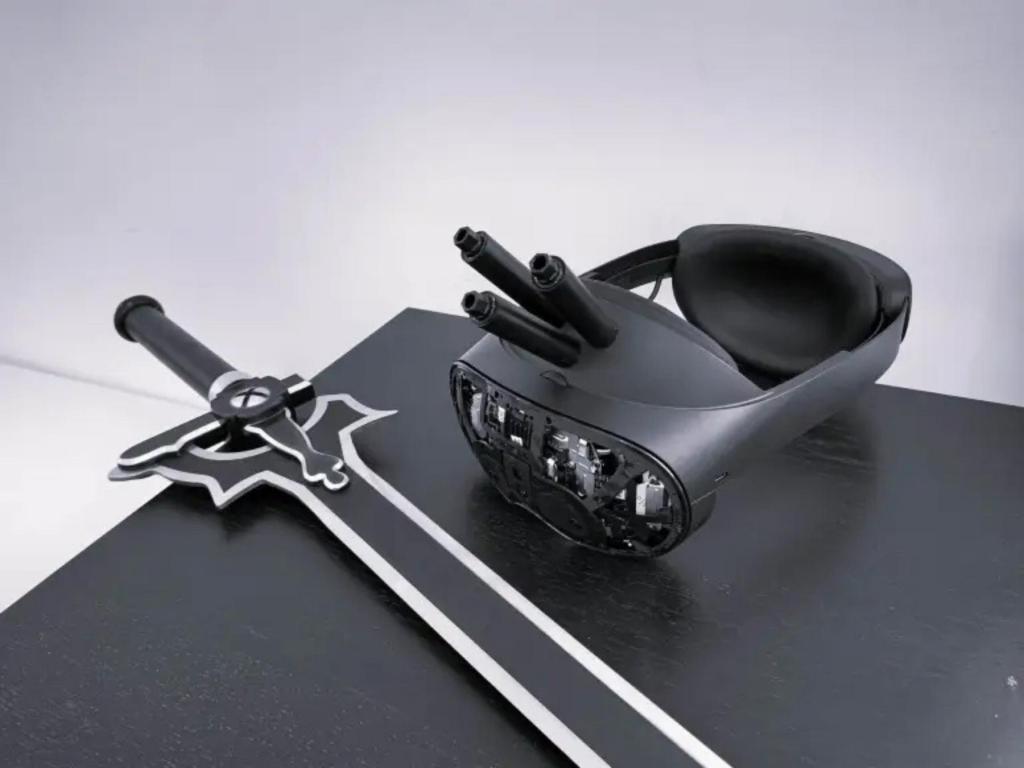Well, it looks like Black Mirror is finally here. Palmer Luckey, the founder of Virtual Reality company Oculus, just showed off his terrifying new creation: a VR headset that literally kills players for real if and when they lose a game.
Luckey describes how the headset works in a blog post, and fair warning; it’s absolutely horrifying.
He explained that the headset was inspired by popular Japanese anime series ‘Sword Art Online’, where characters play in an expansive life-or-death virtual reality game. In the series, players are trapped in a giant open-world simulation where technology called “Nerve Gear” links all five senses into the gameplay and eventually kills the users if they fail to beat the game.
TLDR: you die in the game, you die for real.
Luckey’s real world take on this is a freaky matte black VR headset with 3 large prongs protruding from the top. The three prongs are reportedly “explosive charges” that will explode when a player encounters the “game over” screen.
He then jumped on Twitter to defend the concept, contrasting the concept of grisly sci-fi gaming with real world impacts to extreme sports, asking his 131,000 followers the following question in a Tuesday tweet.
“The concept of video games with physical consequences as severe as death are a sci-fi staple, but seen as beyond the pale in real life. Given the popularity of motorsports, extreme athletics, etc: Why?”
Palmer Luckey
In the following debates that ensued in the comments section, Luckey seems to be genuinely interested in introducing the idea of some level of real-world consequences to video games. Regardless of how far he goes with it, it might be a good move to read the terms and conditions that come with the next version of an Oculus headset …
Luckey’s not doing many favours for VR
While Luckey’s chilling new creation has certainly gotten the attention of millions from around the world, it’s not doing any huge favours for the public reputation of the Virtual Reality industry, which is already struggling with a reputation for leaning towards being a tad dystopian.
While Luckey hasn’t been doing any direct work for Zuckerberg — he sold Oculus to Zuck for US$2 billion back in 2014 — the entire VR movement is grappling with the problem of trying to make the technology approachable to new users. So, this newfound association of VR with the macabre and gory idea of having one’s head blown off for losing in a game might not be the best play.
To that point, a number of major investors have turned their backs on Zuckerberg and his cash-burning pursuit of a VR-based metaverse, calling Meta’s (META) current strategy “super-sized and terrifying”.
The broader market isn’t exactly backing Zuck’s vision of a virtual reality metaverse either, with Meta’s share price currently down 64% from all time highs following news that the company posted an astonishing $US9.4 billion loss on metaverse R&D this year alone.



